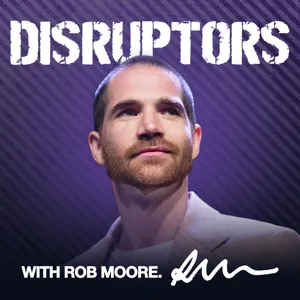Podcast Summary
Social Media Companies' Role in Shaping Our Online Worlds: The Supreme Court is hearing a case on social media companies' role in regulating content, as they've become more active and some argue it infringes on First Amendment rights. Conservatives feel their voices are being suppressed, leading to a heated debate.
Social media platforms like Facebook, TikTok, and YouTube shape our online experiences in unique ways based on our interests. While these platforms can serve up content we enjoy, they also filter and curate what we see. This has become a contentious issue, with some arguing it infringes on First Amendment rights. The Supreme Court is set to hear a case on this matter, as social media companies have increasingly taken a more active role in regulating content, particularly during times of crisis or political unrest. For years, these companies claimed they were just platforms and not publishers, but their actions during the COVID-19 pandemic and the 2020 presidential election changed that narrative. Some conservatives feel their voices are being suppressed, leading to a heated debate over the role of social media companies in shaping our online worlds.
Laws against social media censorship and free speech clash: Florida and Texas passed laws against social media censorship, but NetChoice argues these infringe on companies' free expression and enterprise rights, creating a legal clash
The debate surrounding social media content moderation and free speech has led to a legal clash between state governments and tech companies. Florida and Texas passed laws preventing large social media platforms from censoring users based on their viewpoints without explanation. However, NetChoice, a trade group representing tech companies, argues that these laws infringe on the companies' right to free expression and free enterprise by forcing them to host lawful but objectionable content. The case is ongoing, highlighting the complexities and potential consequences of regulating online speech.
Balancing Free Speech and Editorial Discretion for Social Media Platforms: The Miami Herald versus Tornillo case established newspapers' right to decide content, but some states propose laws restricting social media platforms' editorial discretion, sparking a debate over free speech vs. moderation.
The ongoing debate between social media platforms and state governments revolves around the balance between free speech and editorial discretion. The Miami Herald versus Tornillo case from the 1970s established that newspapers have the right to decide what content to publish without interference from politicians. However, some state governments, like Texas and Florida, are proposing laws that would restrict this discretion for social media platforms. Critics argue that these laws would limit the platforms' ability to moderate content and potentially force them to host objectionable material. Supporters, on the other hand, believe that these laws are necessary to protect citizens' free speech rights and prevent censorship. The ultimate question is whether social media platforms should be treated more like newspapers, with editorial discretion, or more like telephones, with a duty to provide equal access to all users.
The Debate Over Regulating Social Media as Common Carriers: The Supreme Court case could result in increased hate speech on social media if regulations lead to a flood of harmful content, while some propose adding more positive content to counteract it.
The debate over regulating social media companies like common carriers, as argued by Texas and Florida in front of the Supreme Court, raises questions about the role of these platforms in our lives and their impact on free speech. While some argue that users have plenty of alternatives, others worry about the potential consequences of regulation, including an increase in harmful speech. A First Amendment expert expresses concern that such laws may be more about the culture wars than a principled stance on free speech. The outcome of this case could lead to a significant shift in how social media is regulated, potentially flooding these platforms with more hateful speech. Some suggest that increasing positive content, like drum solos, could help drown out the hate speech. This episode was produced by Angel Carreras and engineered by Neil Rauch.
Collaborative Effort in NPR's Content Production: Effective communication and teamwork among fact checkers, editors, and producers at NPR result in accurate and engaging content for their audience.
Effective communication and collaboration are essential in producing high-quality content, whether it's for radio or any other media. In the case of NPR, the team behind the production of their content includes various roles such as fact checkers, editors, and producers, each contributing their expertise to ensure accuracy and coherence. Sierra Juarez fact-checks the information, Patty Hirsch edits the content, and Kate and Cannon serve as editors overseeing the entire production process. This collaborative effort results in trustworthy and engaging content for NPR's audience.






